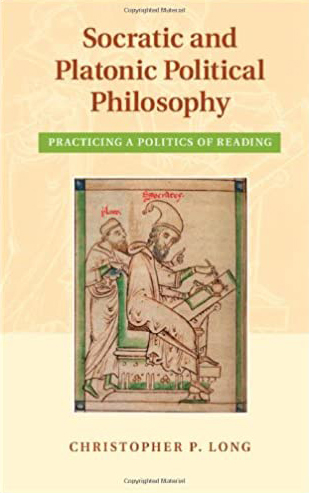Cambridge University Press, 2014
Socratic and Platonic Political Philosophy: Practicing a Politics of Reading
In the Gorgias, Socrates claims to practice the true art of politics, but the peculiar politics he practices involves cultivating in each individual he encounters an erotic desire to live a life animated by the ideals of justice, beauty and the good. Socratic and Platonic Political Philosophy demonstrates that what Socrates sought to do with those he encountered, Platonic writing attempts to do with readers.
Christopher P. Long’s attentive readings of the Protagoras, Gorgias, Phaedo, Apology, and Phaedrus invite us to cultivate the habits of thinking and responding that mark the practices of both Socratic and Platonic politics. Platonic political writing is here experienced in a new way as the contours of a politics of reading emerges in which the community of readers is called to consider how a commitment to speaking the truth and acting toward justice can enrich our lives together.
“In presenting analyses of five dialogues - Protagoras, Gorgias, Phaedo, Apology of Socrates, and Phaedrus - Long draws extensively on a wide range of Platonic scholarship. His interpretation of the meaning of Socrates’ claim to practice the true art of politics, its exemplification in the specific dialogues he treats, and the way in which Plato’s dialogues are intended to replicate it is nevertheless quite original. Emphasizing the importance of dialogue and the ways in which Socrates addressed specific individuals and tried to benefit them by forming a philosophical community, Long’s account of Socrates’ true art of politics does not describe political practice as it was ordinarily understood. It is much nobler and more high minded.”
Catherine ZuckertUniversity of Notre Dame

